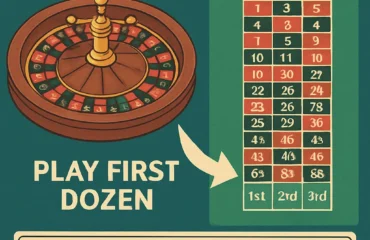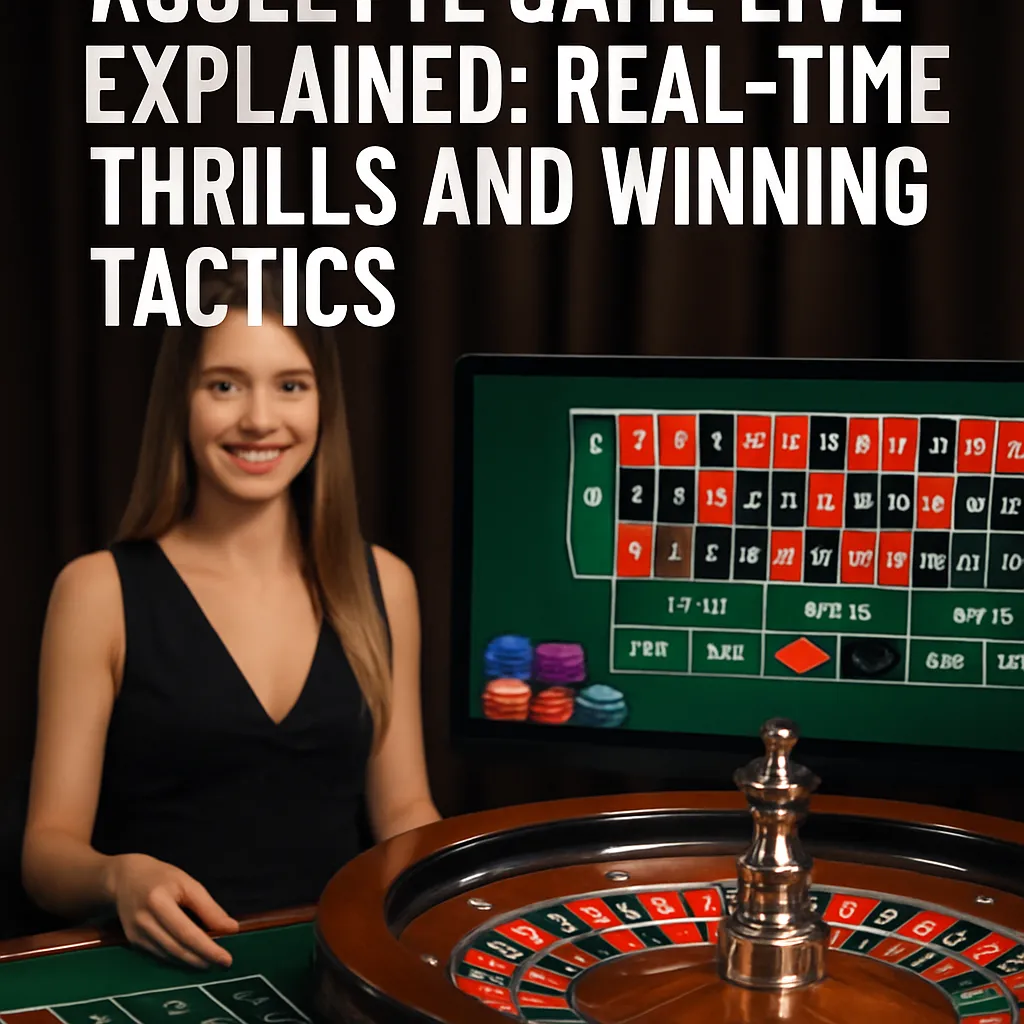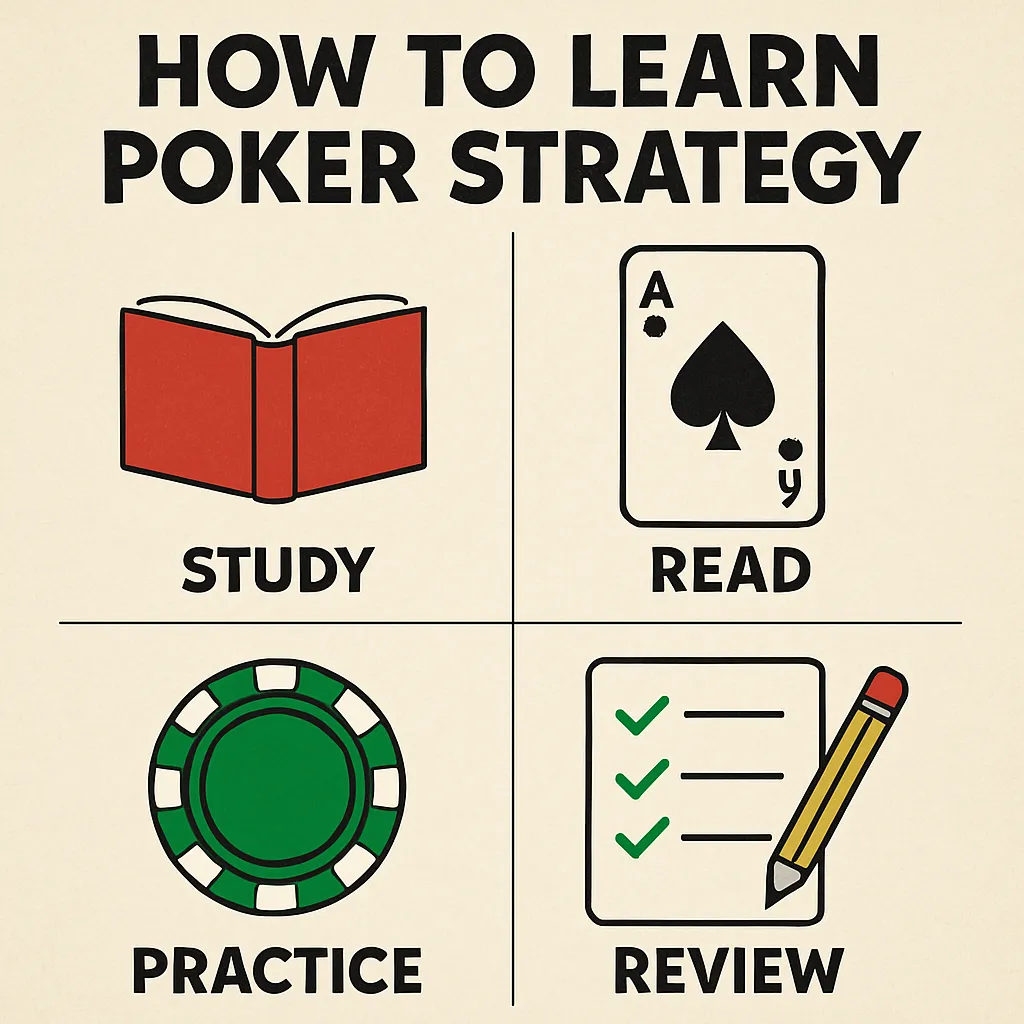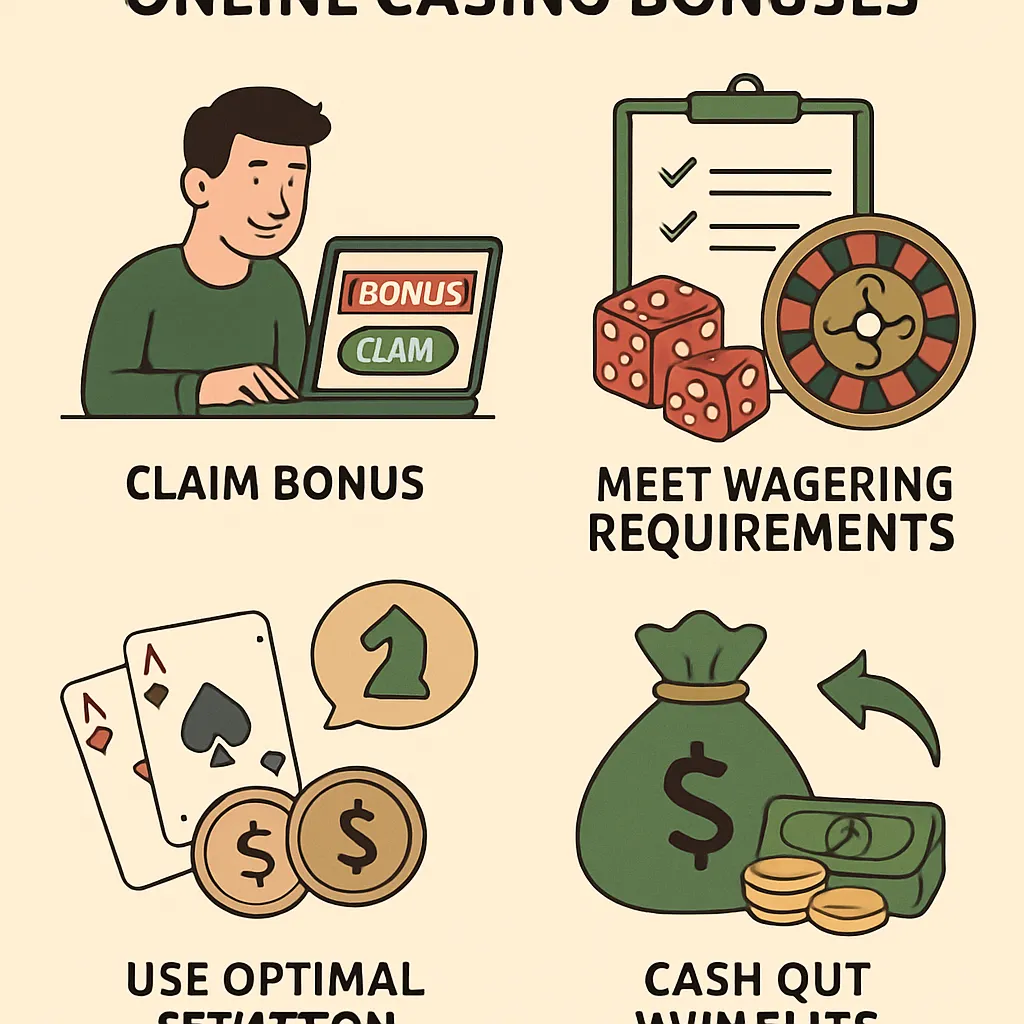Best strategy to win roulette at casino
2025-07-28

The estimated reading time for this post is 620 seconds
Roulette has captivated casino-goers for centuries with its spinning wheel, the clatter of the ball, and the promise of fortune. The allure lies in its simplicity and the tantalizing chance of beating the odds. Yet many myths persist about foolproof systems to guarantee wins every time. In reality, roulette remains a game of chance with a built-in house edge that cannot be entirely overcome. This article addresses the core question of whether any strategy can truly tip the balance in your favor, and if so, which approaches come closest to maximizing your chances. We’ll explore the mechanics of the game, popular betting systems, influencing factors, and practical suggestions for both online and offline play.
The Roulette Wheel and Table Layout
The roulette wheel is the centerpiece of the game, consisting of numbered pockets from 0 to 36 (with an additional 00 in American variants). Each pocket alternates between red and black, except the green zeros, which confer the house edge. The layout of the roulette table mirrors the wheel’s numbering pattern, allowing players to place bets on single numbers, groups, colors, or numerical ranges. The way chips are placed on the betting mat corresponds to different payout odds; inside bets have higher payouts but lower probabilities, while outside bets pay less but hit more frequently. Understanding this relationship between probability and payout is essential before diving into any strategy. A firm grasp of the table layout helps you visualize and plan your bets efficiently.
Key Terms Every Player Should Know
Before wagering real money, it’s crucial to be familiar with common roulette terminology. “Inside bets” refer to wagers placed directly on numbers or small groups of numbers, offering high payouts up to 35:1 but with low hit rates. “Outside bets” include options such as red/black, even/odd, and high/low, paying even money but with nearly 50% success probability. The “house edge” is the casino’s built-in advantage, typically 2.7% in European roulette and 5.26% in American roulette. “En prison” and “la partage” are special rules in some European tables that reduce the house edge on even-money bets by returning or “imprisoning” your wager when the ball lands on zero. Knowing these terms allows players to choose bets aligned with their risk appetite.
Popular Roulette Strategies Explained
The Martingale Strategy
The Martingale strategy is one of the most well-known betting systems, based on the premise of doubling your bet after each loss. The idea is that when you eventually win, you’ll recover all previous losses plus gain a profit equal to your original stake. Despite its simplicity, Martingale can quickly reach table or bankroll limits if you encounter a long losing streak. Casinos often set maximum bet limits precisely to thwart such exponential progressions. Moreover, you need a sizable bankroll to absorb potential downswing before a win appears. While Martingale can work in the short term, its risk profile makes it unsuitable for risk-averse players or those with limited funds.
The Reverse Martingale Strategy
Also known as the Paroli system, the Reverse Martingale inverts the doubling principle by increasing your bet after a win rather than a loss. This approach aims to capitalize on winning streaks while limiting exposure during losing runs. Typically, you start with a small base bet and double it on each consecutive win, resetting to the original stake when you lose. This method can yield significant gains when luck aligns, but it requires strict discipline to lock in profits and avoid giving back large amounts. Players often set a limit on the number of consecutive doubles to mitigate risk. Although it manages bankroll more conservatively than traditional Martingale, it still carries the chance of surrendering accumulated winnings if the streak suddenly ends.
D’Alembert Strategy
The D’Alembert strategy proposes a gentler progression than Martingale, adding one unit to your stake after a loss and subtracting one unit after a win. This system assumes that wins and losses will balance out over time, helping you achieve a small profit without dramatic variance. While less likely to bust your bankroll swiftly, D’Alembert also yields smaller returns and can still accumulate losses during extended losing streaks. Its moderate nature makes it appealing for players seeking steadier, albeit modest, gains. The strategy’s effectiveness hinges on timely session endings and sound bankroll management. In practice, many find D’Alembert more approachable than doubling systems because of its lower volatility.
Fibonacci System
Based on the famous numerical sequence, the Fibonacci system prescribes betting by summing your two previous stakes—1, 1, 2, 3, 5, 8, and so on—when a loss occurs. Upon a win, you step back two places in the sequence, aiming to recover losses gradually. This progression is slower than Martingale or Reverse Martingale, reducing abrupt swings in bet size. However, lengthy losing streaks can still produce sizable bets, again risking table limit caps. Players favor Fibonacci for its mathematical elegance and perceived balance between potential return and risk. Yet just like other progressive strategies, it cannot nullify the house edge in the long run.
James Bond Strategy
The James Bond strategy is a flat-bet system requiring a fixed distribution of stakes across various bets in a single spin. Typically, you place 70% of your unit on high numbers (19–36), 25% on the six-number line 13–18, and 5% on zero as insurance. This coverage provides a 67% theoretical chance of winning on each spin, based on European roulette odds. However, if the ball lands on 1–12, you lose the full stake. Bond’s approach offers excitement through widespread coverage, but expected returns remain negative due to the house edge. Its main appeal is simplicity and the cinematic association rather than statistical superiority.
Before diving into the table of comparisons, remember that all these systems share a common thread: they manage your bet sizes, not the underlying probabilities. No strategy can alter the fact that each spin is an independent event with fixed odds. Consequently, responsible bankroll management and realistic expectations are paramount.
| Strategy | Mechanics | Pros | Cons |
|---|---|---|---|
| Martingale | Double bet after loss | Quick recovery; simple | High variance; table limits |
| Reverse Martingale | Double bet after win | Captures hot streaks; limited downside | Winnings can evaporate quickly |
| D’Alembert | +1 after loss, −1 after win | Moderate risk; smoother swings | Slow profits; still vulnerable to streaks |
| Fibonacci | Next stake = sum of previous two | Mathematically structured; slower growth | Sequence can balloon; table limits |
| James Bond | Fixed distribution across zones | Broad coverage; exciting | Flat loss if key zone hits |
Factors Influencing Strategy Effectiveness
House Edge and Game Variants
The built-in house edge is the fundamental obstacle no strategy can entirely overcome. European roulette carries a 2.7% edge thanks to a single zero, whereas American roulette with both 0 and 00 jumps to 5.26%. Some variants, like French roulette, incorporate “en prison” or “la partage” rules that halve the house edge on even-money bets. When selecting a table, always look for versions with the lowest possible edge. Even a small percentage difference can dramatically affect your long-term expected loss. Understanding which variant you’re facing is crucial before deploying any betting system.
Betting Limits and Bankroll Management
Each casino and table has minimum and maximum bets that can make or break a progressive system. Martingale and Fibonacci, for instance, can quickly escalate bet sizes beyond the table cap. Before playing, set a personal bankroll limit and decide on a maximum bet ceiling, regardless of the casino’s allowance. Allocate your funds in session increments to prevent rapid depletion. Responsible gamblers often employ a stop-loss threshold and a target profit goal. By managing your bankroll diligently, you can extend playtime and reduce the emotional pressure that leads to poor decisions.
Emotional Control and Risk Appetite
Your psychological state greatly impacts strategy adherence and decision-making. Chasing losses or deviating from your plan when emotions run high invariably leads to bigger setbacks. Establish clear rules for when to quit, whether you’re on a winning streak or a losing run. Understand your personal risk tolerance before wagering; aggressive players may prefer high-variance systems like Martingale, while conservative gamblers lean toward D’Alembert or flat betting. Keeping a level head improves consistency, regardless of the strategy. Remember that roulette is entertainment first—never let the thrill override rational judgment.
Additional Tips for Playing Roulette
How to Choose the Best Strategy for You
Selecting the right approach depends on your goals, bankroll, and temperament. If you seek steady, small gains with minimal risk, consider conservative systems like D’Alembert or flat even-money bets. For thrill-seekers willing to endure swings, Martingale or Reverse Martingale might fit the bill. Test strategies in free online play before staking real money to gauge comfort levels. Keep records of wins and losses to analyze which system aligns best with your style. Ultimately, no strategy guarantees riches, so pick one that maximizes enjoyment and aligns with your tolerance for variance.
Common Mistakes to Avoid
Many players fall prey to logical fallacies, such as believing past spins influence future outcomes—known as the gambler’s fallacy. Others chase losses by raising stakes impulsively, ignoring both table limits and bankroll safety. Failing to understand payout odds can lead to mismatched bet sizes and skewed risk. Skipping warm-up sessions in demo mode often results in wasted funds on avoidable mistakes. Another pitfall is neglecting to factor in table rules like en prison that could benefit you. Awareness of these common errors will help you play smarter and more sustainably.
- Don’t double bets after every loss without limit; set a maximum progression step.
- Avoid betting emotionally—stick to pre-defined session goals and stop-loss rules.
- Never wager money you can’t afford to lose; treat roulette as entertainment.
- Always verify table variant and house rules before playing.
- Keep your sessions short to minimize exposure to the house edge over time.
Developing a Customized Strategy
A truly effective approach blends elements from multiple systems to suit your style. For example, you might employ Reverse Martingale during a warm-up phase and switch to flat bets once a target profit is reached. Combine numerical progressions with fixed session limits for a hybrid method that controls risk. Use checklists to ensure you always adhere to bankroll and stop-loss guidelines. Over time, refine your plan based on actual win/loss records and observations. Customization empowers you to adapt swiftly when conditions change at the table.
Online vs Offline Roulette
Advantages of Playing Online
Online roulette offers convenience, accessibility, and a wide range of variants at your fingertips. Digital platforms often feature lower minimum bets, free demo modes, and attractive welcome bonuses that extend your playtime. You can set deposit and loss limits via account controls to enforce responsible gambling practices. Live-dealer tables replicate the physical casino atmosphere while tracking statistics to inform your bets. Mobile apps provide the flexibility to play anywhere, anytime, with secure payment options. Plus, online venues frequently integrate tracking tools to analyze your performance over multiple sessions.
Selecting the Right Online Casino
Choosing a reputable online casino is critical to safeguard your funds and ensure fair play. Look for valid licenses from recognized authorities like the UKGC or MGA. Read user reviews and verify audited RNG certificates to confirm game integrity. Compare bonus terms and wagering requirements before accepting any offer. Opt for platforms with clear customer support channels and prompt withdrawal processes. Finally, ensure the site’s interface is user-friendly and offers the roulette variants you prefer. A reliable casino enhances your gaming experience and peace of mind.
- Check licensing information and RNG certifications before registering.
- Compare bonus structures and read the fine print on wagering requirements.
- Verify available roulette variants and table limits match your strategy.
- Ensure secure payment methods and speedy withdrawal policies.
- Test the user interface and mobile compatibility in demo mode.
Conclusion
Throughout this article, we’ve examined the mechanics of roulette, popular betting systems such as Martingale, D’Alembert, Fibonacci, and James Bond, and the critical factors that shape their effectiveness. We’ve stressed that no strategy can override the house edge, but that disciplined bankroll management and emotional control can enhance your experience and potential returns. Whether you prefer online convenience or the tactile thrill of a land-based casino, choosing the right variant and platform is key. Utilize demo modes to refine your approach without financial risk, and always adhere to preset stop-loss and profit targets. Remember, roulette is meant to be entertaining—set realistic expectations and play responsibly. By combining informed strategy selection with prudent practices, you can enjoy the game while making the most of your chances.




